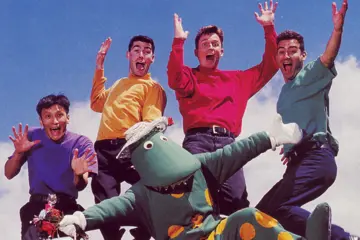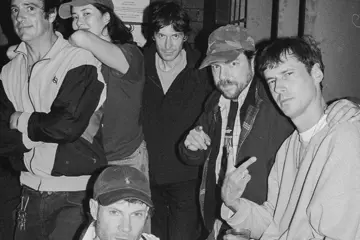It's a piece of coincidental film-release scheduling that can't help but prompt a side-by-side breakdown: Lawless vs Killing Them Softly. Two films by two hard-men of Australian macho, made on foreign shores with big-name foreign stars, both depicting criminal anti-heroes trying to make a dime in harsh economic times. Going to watch them back-to-back after they opened on the very same day, yr bestestest homie Film Carew wondered if he was going to witness the exact same film twice over. Gladly, this was not the case. For one of them was horrendously awful, and the other was unexpectedly brilliant.
Without wishing to even bother building suspense, Lawless is borderline insufferable; instantly becoming John Hillcoat's worse film; meaning, for those with long memories, it somehow beats out that dreadful ex-pats-in-Papua-New-Guinea, abusive-relationship psychological-thriller in which Rachel Griffiths took her top off (note: 1996's To Have & To Hold; whose banal title I had, of course, completely forgotten). Though it comes with the apparently Melburnian-proof association of a Nick Cave screenwriting credit, the screenplay essentially takes a maudlin, sentimental, cliché-riddled tale (adapted from a piece of 'historical fiction', the worst publishing niche this side of the fraudulent-holocaust-memoir) and hones in on those very elements; with even those - or, moreso, specifically those - who delighted in Naughty Nicholas's deranged (and very much unmade) treatment for a Gladiator sequel unable to find much here that isn't worth wincing at. I guess we all just cash the cheque now and then.
Lawless spools out as so much spooned treacle; a sticky confection of Oscar-bait hoping to lure and trap those bumbling, bearish voters who've, in this past, proved more than partial to unironic portraits of storybook backwoods Americana and sentimental gangster movies; of which this movie is - to my double dismay - both. If there's one film Lawless reminded me of, it was Sam Mendes' terrible sentimental gangster movie The Road To Perdition; a lumpen, lifeless, maudlin, manipulative, Depression-era costume-drama dud that, somehow - the power of Tom Hanks? - ended up with six Oscar nominations. And, so, now we have this Weinstein Company piece of cinematic flotsam; another tale of flat caps and waistcoats and bootleggin' and crime syndicates and killins and blood-bein'-thicker-than-water and Tommy-guns poppin' and gangsta molls trying to start over and etc.etc., set in the Prohibition era.
It's, in short, tedious in extremis; the narrative a tired rise-and-fall crime-movie saga whose dramatic developments - like the perfunctory love-interests and the everything's-going-great montage and the sad Goose-dies-in-Top-Gun-esque killin' of the hero's simpler friend - are so routine and expected that you end up obsessing over the random details: like whether Tom Hardly studied Heath Ledger's mumblin'-Ledgie era (Brokeback, Candy, Casanova et al) to get his mumble down for his role as the indestructible, hard-jawed middle-brother; and parsing every syllable of Shia LaBeouf's attempt at an early-20th-century-West-Virginia-hillbilly accent; and counting down the seconds 'til the womenfolk get raped, just so the audience can be granted the virtuous pleasures of rape-revenge. True to the metier of the Cave/Hillcoat combo, the violence is grim and harrowing, but it's also loaded with a dubious, at-times-detestable morality that only Hollywood could justify; with Guy Pearce playing a cavorting, queer-caricature-ish villain so ridiculous that, in theory, you can't wait for him to get killed. Sadly, you have to wait through - to wade through - 115 minutes of wishy-washy screenwriting; the film's original title, The Wettest County In The World, seemingly referring to the picture's soap-operatic sentimentality.
Don't miss a beat with our FREE daily newsletter
“America isn't a country, it's a business: so pay up!” Brad Pitt barks, in the - pun semi-intended - money moment at Killing Them Softly's close. It's a quotable bit of flip hit-man dialogue that, if you peel back its crime-movie bluster even a little, starts to reveal the thematic depth of Andrew Dominik's screenplay, in which cash runs everything around everyone, and dogs are symbolic of a dog-eat-dog world. It's based on a novel called Cogan's Trade, a piece of winding '70s pulp fiction whose tales of small-time criminals scraping to get by in depressed economic times are transplanted, with a genuine sense of flourish, to late 2008 America: the Obama/McCain election campaign; the global economic crisis; the Wall St. bailouts, etc. Dominik pronounces both the film's socio-economic/historical theme and his quietly avant-garde direction with a bravura opening sequence: in which the reassuring orations of Barry O are broken up by jarring edits and the hiss and din of white noise; the dreams of Hope and Change being assaulted by the calamities of reality. It's essentially an artfully-staged walk-out-of-the-big-house for the film's unlikely first protagonist (the essentially-unknown Scoot McNairy, due for a big breakout with both this and Argo on screen); the realities immediately presented to him involve the need for money, and the ease with which he could get it if he returns to his life in the criminal underclass.
McNairy and his co-collaborateur (Ben Mendelsohn, revelling in a role as a loudmouth bogan junkie), are the smallest of small-timers, and after beginning with them, the film slowly works its way up the food chain, to the point where we get meetings Brad Pitt, the titular hit-man of the novel, and Richard Jenkins, a white-collar company-man of no known identity, who reports back on the wishes of his unseen, mysterious 'bosses', plural, whose decisions are routinely mocked, by Pitt, for being “by committee.” Dominik's depiction of the crime network as a petty bureaucracy is, of course, a commentary on America itself; the constant soundtrack of campaign speeches and George W. reassurances a droll reminder of how the hierarchies of organised crime mirror those of society at large; each a shrine built to ruthless hyper-capitalism, and succeeding at the expense of others.
If, in Lawless, you could set your watch by its perfunctory parade of screenplay clichés - and, perhaps, is this also the time to talk about how Dominik's underrated revisionist-Western, The Assassination Of Jesse James By The Coward Robert Ford, was infinitely superior to Hillcoat's overrated revisionist-Western, The Proposition? - then it's a joy to watch Killing Them Softly unfold, with a series of unusual narrative moves that constantly reposition the centre of the 'action', the drive of the narrative, and the audience's involvement therein. It's less like a crime film - even if there's a pitch-perfect heist scene that holds its long takes fervently, and makes every ticking second feel like an eternity; oh, plus, many a good old-fashioned 'whacking' - and more like a political thriller; the corridors of power replaced with a succession of cars, which serve as meeting places, vessels of liberation, statements of masculinity, and, inevitably, coffins. Dominik, wondrously, never invites you to cheer a hero or hiss a villain; never even presents sides to be taken. The positions of those vying for power, herein, are forever shifting; and, when Jenkins and Pitt discuss the need to work the “public angle” in one meeting - to kill someone not out of eye-for-an-eye, internecine virtue, but as a form of spin-doctoring - the comparisons to politics are at their richest. “I believe in America,” Salvatore Corsitto says, at the opening of The Godfather. Killing Them Softly also believes in America, just in a completely different way. It's not a country, an ideal, a people, a meritocracy; it is - mercilessly, and mercenarily - capitalism incarnate.















